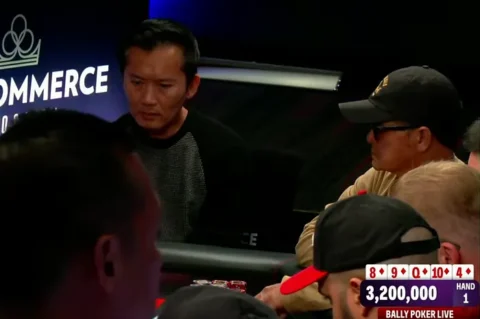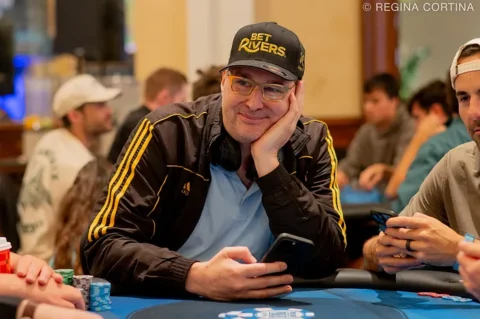Poker is a game of wits, nerve, and psychological endurance. Professional players use various psychological strategies to gain an edge. Understanding human behavior and mastering mental tactics are crucial for excelling in poker. The psychological aspect often separates great players from good ones. It’s not just about the cards but how you play them and read your opponents.
One fundamental psychological skill in poker is maintaining focus and composure under pressure. This is challenging, especially in high-stakes games. It’s pretty similar to the kind of skills one could use in a casino setting, as well. Take captain spins, for example – in order to maximize your RTP it’s crucial that you have a fundamental understanding of your own psyche and keep your composure in the face of risk. We recommend you read more to uncover insights on how to best utilize your poker strategies in online gambling overall.
Understanding table dynamics
Recognizing and adapting to table dynamics is crucial for success in advanced poker. Each table has its unique atmosphere, influenced by players’ personalities, playing styles, and the game’s flow. Identifying player types—aggressive, passive, tight, or loose—can provide valuable insights into their likely actions and strategies.
Adjusting your strategy based on your position at the table is essential. Being in an early position means you have less information about your opponents’ actions, while being in a late position allows you to make more informed decisions. Managing your table image—how other players perceive you—is also vital. A player seen as tight and conservative can bluff more effectively, while an aggressive player might have a harder time convincing others to fold.
Advanced hand reading
Advanced hand reading separates top players from the rest. It involves deducing your opponents’ likely holdings based on their actions throughout a hand. This skill requires a deep understanding of poker probabilities, patterns, and psychology.
Range assessment is a key component of advanced hand reading. Instead of pinpointing a specific hand, skilled players consider the range of hands their opponents might have. Recognizing patterns in betting behavior, such as frequent raises or passive calls, can provide clues about an opponent’s hand strength. Making positional adjustments—altering your strategy based on your position relative to the dealer and other players—can help you outmaneuver your opponents and gain a strategic advantage.
Exploitative play
Exploitative play involves identifying weaknesses in your opponents’ games and capitalizing on them. This advanced strategy goes beyond simply playing solid poker; it requires keen observation and adaptability.
Player-specific exploits are a hallmark of exploitative play. For example, if you notice an opponent frequently folds to large bets, you can exploit this tendency by bluffing more aggressively. Adjusting to the table dynamics is also crucial. If the table is full of tight players, you might adopt a more aggressive strategy to steal blinds and pots. Mixing up your play—varying your betting patterns and strategies—can keep your opponents off balance and make it harder for them to predict your actions.
Bluffing with purpose
Bluffing is an essential component of poker, but advanced players understand that it should have a purpose. Bluffing without a plan can be costly, and effective bluffing involves understanding when to bluff and how to balance bluffing with value betting.
Strategic bluffing requires a keen awareness of your opponents’ tendencies and the context of the game. Bluffing is more effective against tight players who are likely to fold marginal hands. Conversely, bluffing against loose players who call frequently can be a recipe for disaster. Balancing your bluffs with value bets—bets made with strong hands to extract maximum value—can help maintain a winning strategy and keep your opponents guessing.
Mastering mental tactics
The psychological aspects of poker are as important as the technical skills. Maintaining focus and composure, managing emotions, and using psychology to gain an advantage are all critical components of a successful poker strategy.
Confidence is a double-edged sword in poker. A healthy dose of self-assuredness can intimidate opponents, but overconfidence can lead to reckless play. Striking a balance between confidence and self-control is crucial for long-term success. Managing emotions such as fear, greed, and frustration is essential for making rational decisions and maintaining a long-term perspective. Self-control is critical, and the ability to resist impulses and stick to a well-thought-out strategy is crucial for long-term success.
The winning mindset
The winning mindset in poker involves a combination of psychological strategies and technical skills. Understanding human behavior, mastering mental tactics, and employing advanced strategies can significantly improve one’s poker game.
The importance of maintaining focus and composure cannot be overstated. Top players are not only skilled in the technical aspects of the game but also excel in managing their emotions and staying calm under pressure. Utilizing advanced strategies such as understanding table dynamics, advanced hand reading, exploitative play, and bluffing with purpose can give players a significant edge at the table.
In conclusion, poker involves much more than just cards and chips. The psychological strategies employed by professional players often make the difference between winning and losing. By understanding and mastering these mental tactics, you can improve your poker game and gain a competitive edge.














